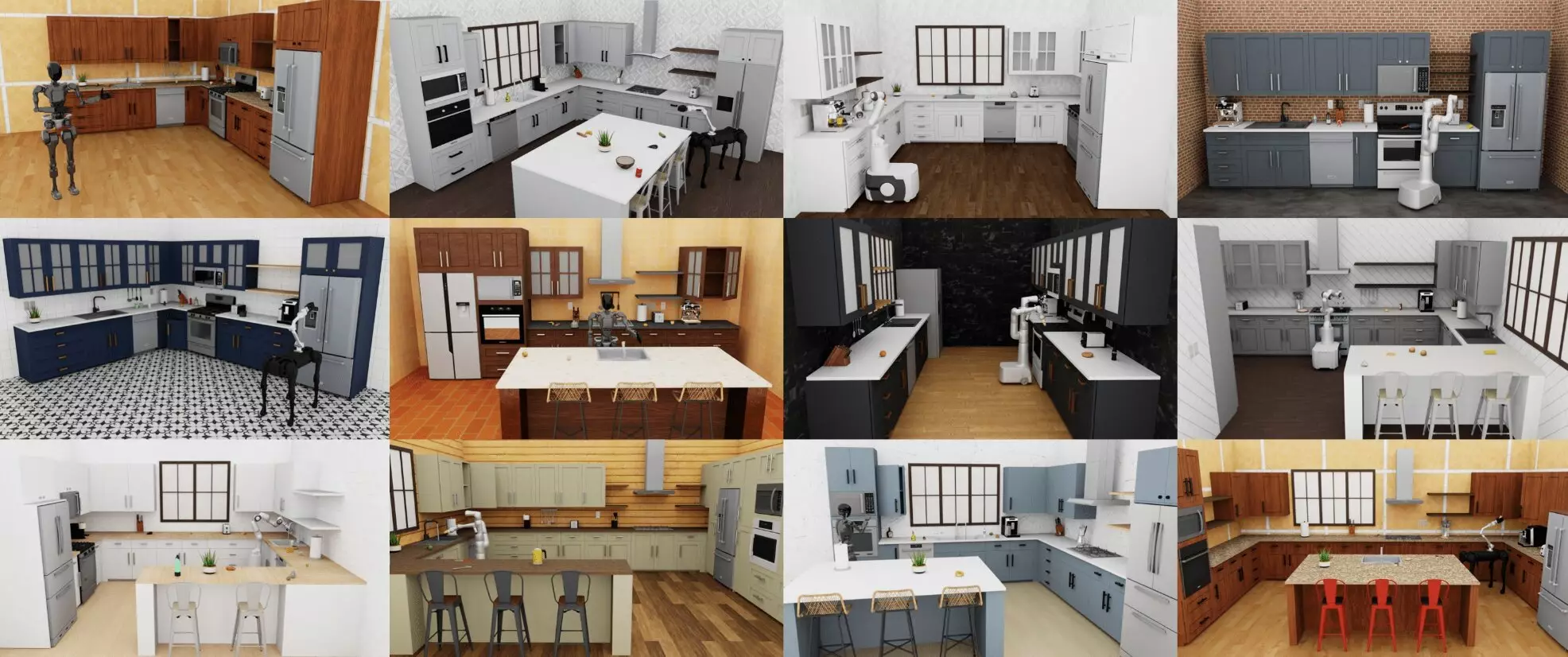The field of artificial intelligence (AI) has witnessed significant advancements in recent decades, particularly in the domain of natural language processing (NLP) and computer vision algorithms. One key factor contributing to this progress is the exponential growth of datasets used to train these algorithms, with vast amounts of images and texts collected from various sources. However, when it comes to training data for robot control and planning algorithms, the availability is relatively limited. Recognizing this gap, computer scientists have been working on developing platforms and datasets to train computational models for robotics applications. A recent innovative initiative in this realm is RoboCasa, a simulation framework introduced by researchers at the University of Texas at Austin and NVIDIA Research.
RoboCasa represents a significant step towards training generalist robots to perform diverse tasks in everyday settings. The platform aims to provide high-quality simulation data essential for training foundation models for robotics applications. The team behind RoboCasa, led by Yuke Zhu, has leveraged generative AI tools to create realistic and diverse object assets, scenes, and tasks within the simulation framework. In addition to supporting various robot hardware platforms, RoboCasa offers large datasets with over 100,000 trajectories for model training. This comprehensive approach emphasizes the importance of realistic simulations and effective training data in enhancing the capabilities of robotics algorithms.
RoboCasa boasts a range of features that distinguish it as a valuable resource for training robotic algorithms. With thousands of 3D scenes, over 150 types of everyday objects, and a variety of furniture items and appliances, the platform offers a rich environment for simulation. The incorporation of generative AI tools has significantly improved the realism and diversity of the simulated world, enhancing the training experience for robots. Moreover, the platform includes 100 tasks that algorithms can be trained on, along with high-quality human demonstrations for these tasks. By enabling effective trajectory generation and motion planning, RoboCasa equips robots with the necessary skills to accomplish a wide range of activities.
One of the key findings from the development of RoboCasa is the scalability of performance with the size of the training datasets. As the team increased the size of the machine-generated datasets, they observed a steady improvement in the model’s performance. Additionally, the combination of simulation data with real-world data resulted in enhanced performance of robots in real-world tasks, showcasing the effectiveness of synthetic training data. Through initial experiments, RoboCasa has proven to be a useful resource for training imitation learning algorithms and preparing AI models for robotics applications.
As an open-source platform, RoboCasa holds the potential to benefit the wider robotics community by providing access to advanced simulation tools and datasets. Researchers and developers can leverage the platform to experiment with new algorithms and training techniques, paving the way for further innovations in robotic technology. Moving forward, the team behind RoboCasa aims to expand the platform by incorporating more advanced generative AI methods to capture the richness of human-centered environments. By enhancing the variety and realism of simulations, RoboCasa seeks to address the diverse challenges faced by robots in different settings, from homes to factories and offices.
The development of RoboCasa represents a significant advancement in robotics simulation, highlighting the power of high-quality training data and realistic simulations in enhancing the capabilities of robots. By leveraging generative AI tools and scalable training datasets, the platform offers a valuable resource for researchers and developers to explore new possibilities in robotics applications. With a commitment to ongoing improvement and expansion, RoboCasa stands as a promising initiative in the evolution of robotics technology.


Leave a Reply